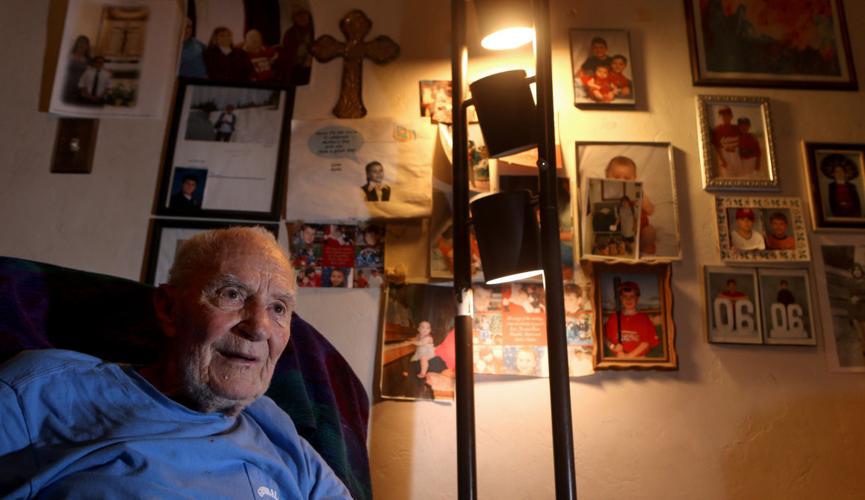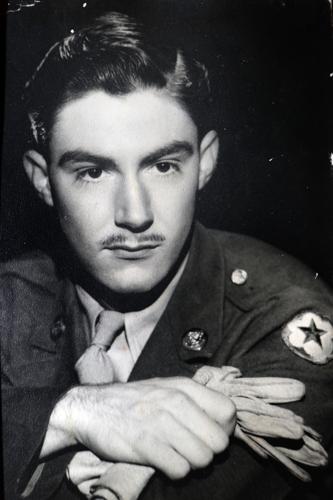Although Dale Hughes will turn 94 years old on Oct. 23, his legacy was born the morning Japanese pilots attacked Pearl Harbor.
“That was the day my life changed; it was time to enlist,” Hughes said.
Hughes’ heart was set on the U.S. Marines, but he failed the vision test. Hughes was eventually drafted into the Army, and began his 40-year military career on Aug. 20, 1942.
Becoming a soldier was his calling, Hughes said, and he’s remained a staunch proponent of the draft and military service because of its lifelong benefits.
“Everyone owes something to their country,” Hughes said.
Hughes was the first of five brothers to deploy. By the end of the war, each brother would serve. Their father, Perry Hughes, was inducted into the Army at 44 years old, eventually rising to the rank of staff sergeant.
 |
Hughes was trained as a tank driver at Camp Plauche, just outside of New Orleans, and served two tours in North Africa.
On his first deployment, in 1943, Hughes was his company’s sole survivor during a battle at Kasserine Pass in Tunisia.
Recalling that scene now conjures up feelings of guilt, but at the time, it reinforced his commitment, Hughes said.
After the war, Hughes wrote three books about his time as a soldier, and also published more than a dozen collections of short stories, poems and journals that he and fellow service members wrote.
“Reflections” was published in 1982, and serves as a memoir and history of the 8th Battalion, 40th Armor for the Army Reserve from 1959 to 1981.
Hughes was first introduced to the disciplines of military training at the age of 6, when he was sent to Indiana Soldiers’ and Sailors’ Children’s Home, located just outside Knightstown, Indiana. His mother had contracted tuberculosis while working as a nurse at a veterans hospital, and died a year later.
The orphanage focused on teaching its students a craft. Hughes learned to be a printmaker there. When he came back to the U.S. after the war, it was his profession. Upon settling in Tucson, he established the 8th Battalion, 40th Armor Army Reserve unit, based out of Fort Huachuca.
In looking back, Hughes said his greatest accomplishment in the service was meeting his wife, the late Artemisa Hughes. Hughes lit up when he recalled their first date, which initially proved fruitless.
Even though they were both stationed at Camp Huckstep in Cairo, after their first night out, they remained just friends. Then Hughes received a warm season’s greetings telegram from Artemisa on Christmas Day, 1945, and their lifetime together began, he said.
Michele Brubaker, Hughes’ oldest daughter, graduated from Salpointe Catholic High School, and spent most of her 30-year teaching career there. She currently works at the Tucson, faith-based senior assistance program Lend A Hand.
Brubaker said Hughes has always been a “people person,” and said she believes that’s an important part of his legacy. “He always finds a connection with people,” she said.
Brubaker said she learned many invaluable lessons from Hughes, but developing a strong work ethic and becoming selfless stand out the most.
All veterans deserve recognition, she said, and her father’s overall perseverance could inspire others to remain strong when facing adversity.
“Even if you’ve been raised in an orphanage, been through war and back again, raised a family or endured loss, you still get up in the morning and keep moving ahead,” Brubaker said.





